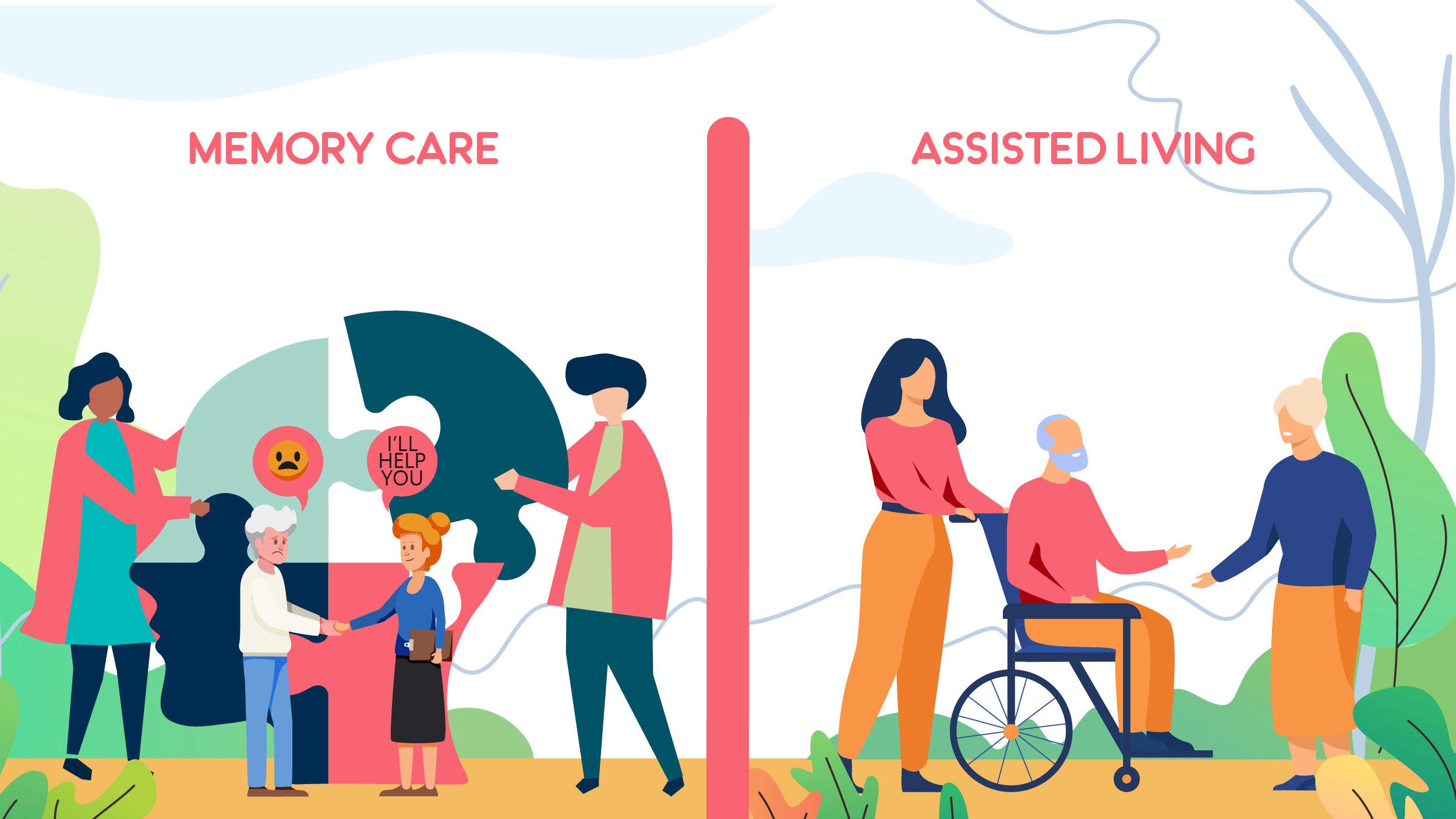Charlotte Memory Care: Specialized Care for Alzheimer's and Mental deterioration
Charlotte Memory Care: Specialized Care for Alzheimer's and Mental deterioration
Blog Article
Developing a Safe and Helpful Atmosphere: In-Home Memory Care Basics
Establishing a caring and safe atmosphere for people needing at home memory treatment is vital to their health and lifestyle. From making certain safety and security within the home to employing reliable communication techniques and implementing memory-friendly style elements, there are essential elements that add to an all natural treatment approach. By concentrating on creating an encouraging environment that deals with the one-of-a-kind requirements of those with memory problems, caregivers can significantly improve the daily experiences of their liked ones.

Safe Living Environment
When giving in-home memory treatment for individuals with cognitive disabilities,Creating a safe and hazard-free living environment is extremely important. Making sure the safety of the private with amnesia is essential to stop accidents and promote a feeling of well-being. One necessary aspect of creating a secure living setting is to remove any type of possible hazards that could bring about slips, trips, or falls. This consists of safeguarding loosened rugs, making sure ample lighting in all areas of the home, and keeping paths clear of mess.
Additionally, making use of innovation such as motion sensing units and alarm systems can alert caretakers if the private wanders or is in distress. By prioritizing safety and security procedures and removing prospective risks, caregivers can supply a safe and supportive setting for people with cognitive impairments getting in-home memory treatment.
Effective Communication Techniques
Applying tailored interaction techniques is essential in promoting purposeful interactions with people with cognitive impairments in the context of at home memory care. Efficient interaction plays an important duty in developing a supportive atmosphere that improves the health and lifestyle for people with memory issues. When interacting with someone experiencing cognitive decline, it is very important to make use of simple and clear language, preserve a calmness and favorable tone, and provide visual signs to assist comprehension.
One secret strategy is to practice active listening, revealing compassion, persistence, and regard throughout discussions. Non-verbal cues such as faces and body movement can additionally help communicate understanding and support. In addition, making use of reminiscence therapy by reviewing past experiences or utilizing songs and art can touch into long-term memories, stimulating and stimulating connections interaction.
Additionally, including normal regimens and regular interaction patterns can provide a feeling of familiarity and security for individuals with memory disabilities. By executing these communication methods, caregivers can establish meaningful connections and promote a sense of comfort and trust in the at home memory treatment setting.
Memory-Friendly Style
Provided the relevance of producing a supportive setting for individuals with memory issues with effective communication strategies, the consolidation of memory-friendly layout aspects in the space becomes crucial in enhancing their everyday experiences and general well-being. Memory-friendly layout concentrates on boosting security, convenience, and freedom for people with cognitive disabilities. Simple alterations can make a considerable difference, such as making use of contrasting colors to enhance exposure and decrease confusion, other incorporating clear signs to help navigation, and minimizing mess to stop sensory overload.
Incorporating familiar aspects from the person's past, such as individual photos or favorite items, can stimulate favorable memories and develop a feeling of knowledge. By integrating these memory-friendly design aspects, caregivers can supply a supportive and safe living space that enables individuals with memory problems to keep their freedom and top quality of life. Charlotte Memory Care.
Daily Regimen Preparation
When establishing a daily regimen for people with memory problems, careful preparation is necessary to support their cognitive function and general well-being. Developing an organized schedule can aid minimize confusion, disorientation, and stress and anxiety frequently experienced by those with memory problems.
Flexibility is essential, as some days might call for changes based on the person's state of mind and energy levels. On a regular basis reviewing and adjusting the daily schedule will help ensure its efficiency in promoting a reassuring and favorable atmosphere for people with memory difficulties.
Support Group Execution
Developing a durable network of encouraging people plays a crucial duty in boosting the top quality of treatment and health for people needing memory support. Member of the family, buddies, health care experts, and neighborhood resources can all add to creating a solid support group. Interaction among these individuals is important why not try this out to guarantee that the needs of the specific with memory obstacles are fulfilled successfully.
Relative are commonly the key caretakers and form the foundation of the support system. They supply everyday care, emotional support, and friendship. When required to avoid exhaustion and ensure the finest possible treatment for their loved one., it is essential for household participants to seek assistance and reprieve.
Along with family assistance, involving medical care experts such as nurses, medical professionals, and therapists can provide customized care and guidance. These experts can provide useful insights, clinical suggestions, and support in managing the person's condition.

Verdict
To conclude, developing a helpful and secure environment for people with memory care needs is necessary for their wellness. By establishing a safe living environment, using effective interaction approaches, including memory-friendly style aspects, planning daily regimens, and implementing a solid support group, caretakers can help boost the quality of life for those with memory loss. These essential elements interact to create a nurturing and empowering environment that promotes self-reliance and enhances overall lifestyle.
Developing a protected and hazard-free living setting is extremely important when supplying in-home memory treatment for people with cognitive disabilities. By prioritizing safety steps and removing potential risks, caretakers can supply a encouraging and safe environment for individuals with cognitive impairments getting at home memory treatment.
Establishing a durable network of helpful people plays a pivotal duty in enhancing the quality of care and wellness for people needing memory assistance - Charlotte Memory Care. Interaction amongst these click site people is crucial to ensure that the requirements of the individual with memory obstacles are met effectively

Report this page